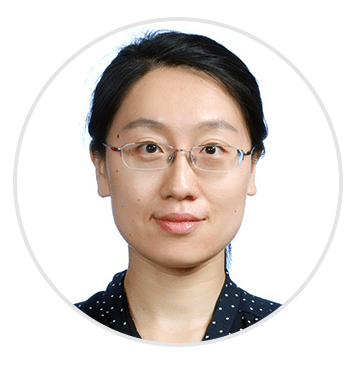Researcher Spotlight: Rui Wu, MD, PhD
University of Pennsylvania Perelman School of Medicine

Anaplastic large cell lymphoma (ALCL) is a rare type of NonHodgkin lymphoma and one of the subtypes of T-cell lymphoma. While current therapies help many patients, as many as 30 percent will have disease which fails to respond to treatment or becomes resistant to therapy. This resistance in ALCL is at least in part caused by an oncogene (a gene capable of transforming a regular cell into a cancer cell) called NPM-ALK, which also appears to help ALCL cells evade detection by the immune system, thus allowing the cancer to progress. For her LRF Postdoctoral Fellowship Grant, Dr. Wu and her collaborators will investigate the mechanism by which NPM-ALK promotes immune evasion in ALK+ ALCL. “Successful completion of this project will provide significant insights into the immune evasion mechanism regulated by ALK and help design novel therapeutic approaches to reestablish innate immune response in ALK+ ALCL,” Dr. Wu says.
Dr. Wu notes that she has a long-standing interest in lymphoma since the beginning of her medical studies, prompting her to complete a PhD from the University of Groeningen in The Netherlands, and an MD from Shantou University Medical College in China. Currently, Dr. Wu is a postdoctoral fellow at the University of Pennsylvania, where she works in the lab of Megan Lim MD, PhD. “Using the experience of this lab my aim is to contribute to better understanding and to find alternative therapeutic strategies for treatment of specific types of lymphoma,” she says.
Dr. Wu has been named the Carl Olsen Postdoctoral Fellow, in memory of an LRF donor with a particular interest in T-cell lymphoma research. She adds that the Foundation’s funding is key to her goals for both her research and her career. “Lymphoma Research Foundation support will pave a way for me to pursue my research career in lymphoma with the hope of fulfilling my overarching goal to mitigate the therapeutic burden on at least one type of lymphoma,” she says. “This is my first funded fellowship in the United States and will be instrumental to the establishment of my future research career as an independent investigator.

